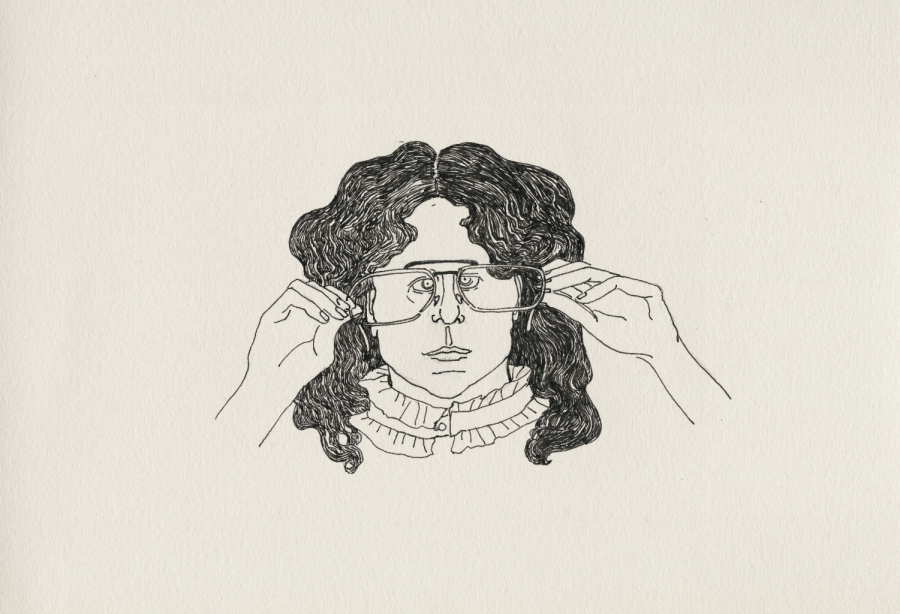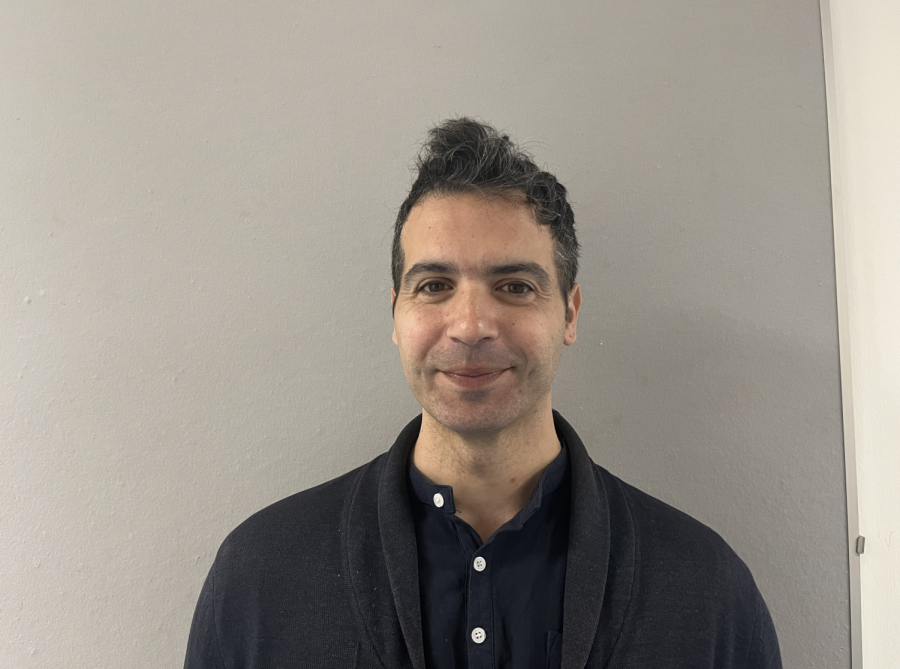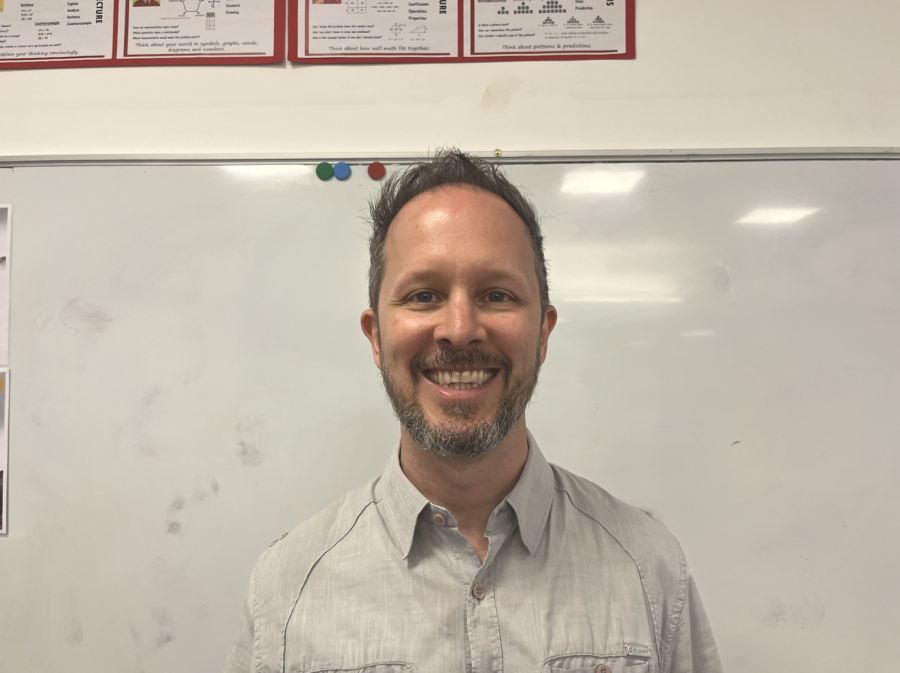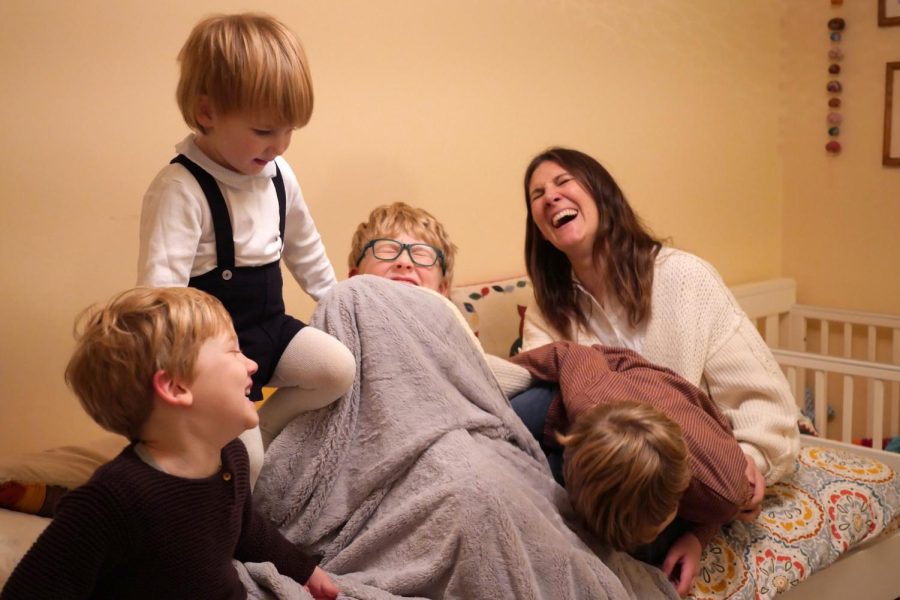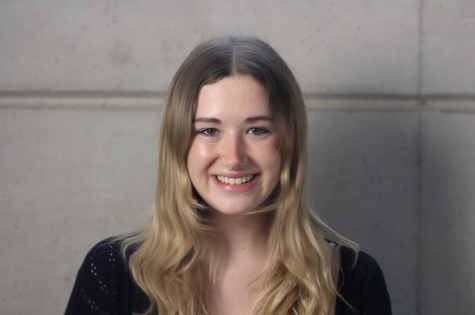Words are magnets to English Teacher Alissa Mears, a passion built first by books, then by her college lecture halls.
“I always loved English,” she said. “I always loved writing. I always loved reading.”
Path to English
Mears’ journey to academia was nurtured by the mentors in her life, namely her mother and her Grade 10 English teacher, who acted as “stepping stones.”
“My mom had been a teacher before I was born, and so it was a little bit planted,” she said. “And then I also had an extraordinary 10th-grade English teacher. She was very polarizing – you either loved her or hated her. I adored her. She was a big influence.”
A stroll around a college campus unveiled the world of English, launching Mears into a deep love for the subject.
“On the tour, I had this really nerdy English major, and she and I just talked a lot about what we were reading,” she said. “I found her really wonderful.”
During those four years, Mears solidified some of her closest friends and engrossed herself in “wonderful” English subject classes.
“We had a lot of seminars similar to Harkness, which was really great for me,” she said. “I worked on the school newspaper, and I just felt very invested.”
Eventually, the school became too small for Mears, and after a year abroad, she “struggled a little bit with returning,” indicating that she was “ready to launch.”
Pedagogical philosophy and experience
Unlike the ease she felt finding English as a passion, Mears did not immediately discover her love for teaching.
“I had a desk job before teaching, and I found that getting to the end of the day, there were days where it felt interminable,” she said. “I never feel that teaching. I feel constantly energized.”
It was really interesting to trust the students at ASL in a way that I hadn’t before.
Mears said she previously taught in the IB system, a structure to which she became accustomed. Expectedly, this forced a shift when adjusting to the school’s design of more student-oriented discussion.
“When I arrived here, it was really interesting to trust the students in a way that I hadn’t before,” she said. “I had trust with my students, but it was this sort of very kind of frightening moment.”
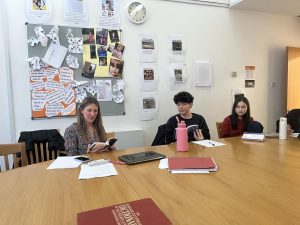
Particularly, Harkness discussions posed a distinct challenge.
“The facilitation of a student-led discussion was something that was that was quite intimidating because I had done it in much more structured ways,” she said. “And I love it now. I think it’s really wonderful. I think that it never gets stale.”
Building on the unique setting of Harkness, Mears’ classroom becomes a two-way street, where she gains just as much from her students as they do from her.
“I love the dynamism in the room,” she said. “I know, every day, on my way to school, I know when I arrived within an hour, I’m going to learn something.”
Mears said she appreciates another benefit of teaching English at the school, namely the autonomy she has to create electives.
“What I have learned to do – which I feel I feel really good – about is being really responsive to my students in the room and creating courses that … invite their lives into the classroom,” she said. “I ask them to explore the text with their lives in mind, allow them that space on the page in their papers.”
Gender in Literature course
Mears capitalized on her newfound autonomy to design “Gender in Literature,” a one-semester course that probes the salient issues of gender and beyond through notable pieces of literature. The reading list includes famous, historic names such as Virginia Woolf, James Baldwin and Mary Wollstonecraft.
“There’s just so much beautiful literature written about gender that has been so unappreciated,” she said. “It is really important for me that I and my students explore and look at the legacy of writing about gender and thinking about gender.”
There’s just so much beautiful literature written about gender that has been so unappreciated.
Beyond just reading and discussing, Mears said she drives students to engage with personal connections to the course content. As such, two key fixtures of the course she has implemented – creative personal essays and text shares – help achieve that goal.
“I really try to make sure that … my students who want to make a text relevant to their own lives are able to do that in a paper,” she said. “It’s been super important to me to provide texts that do mirror certain experiences, but that also interrogate certain experiences that may not be really looked at very closely.”
Regarding text shares, Mears said students choose any kind of text – an essay, photograph, even an Instagram post or music video – that “incited them to think about gender” and “ask some of those questions about gender theory or feminist theory.” Students share their chosen texts in class to provoke deep discussion.
Motherhood
For Mears, motherhood was never a “what if.” She always knew she wanted to be a mother because her relationship with her own mother had “always been the most important.”
In sum, Mears said motherhood is a “total act of humility.”
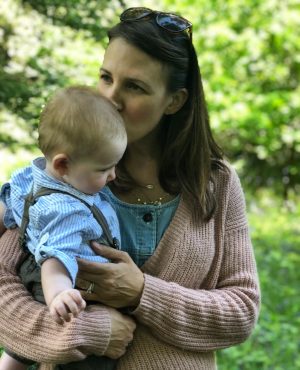
“Usually, I’m going at 50% because my brain and my time and my energy are divided,” she said. “I’m not always the best I can be. I’ve sort of found peace with that, which I think is actually kind of an important life skill.”
To Mears, sending one’s child out into an uncertain world marks one of the most essential maternal duties.
“As much control as you think you have, you have, like, no control,” she said. “Motherhood is the most vulnerable part of yourself ripped out of yourself and raw in the world, and you just have to sort of watch how the world interacts with it.”
Mears said there is something “really beautiful” about forfeiting control and simultaneously “intensely painful.”
“When I decided to have four children, I sort of had to make this weird deal with the world,” she said. “I was going to trust the world and that my kids would, you know, be okay in that world.”
Mears said it is a “magnificent process” to watch her children blossom into “something real” and stray from her own “expectations and interpretations.”
As much control as you think you have, you have no control.
Mears’s experience as a mother also shaped her approach to academia, with one of her children in SLD.
“I was very mindful of student learning differences, but seeing it on the homefront has kind of changed things for me and my sensitivity towards my students,” she said. “I am much more cognizant that what I’m seeing is only a part of who they are, you know, that there is a lot that goes unseen by me.”
For Mears, it enabled her to “see more of their humanity.”
“Having children sort of gave me that same window into my students in a way,” she said.
Just like words, Mears’ joint identities as a mother and a teacher connect like magnets.

